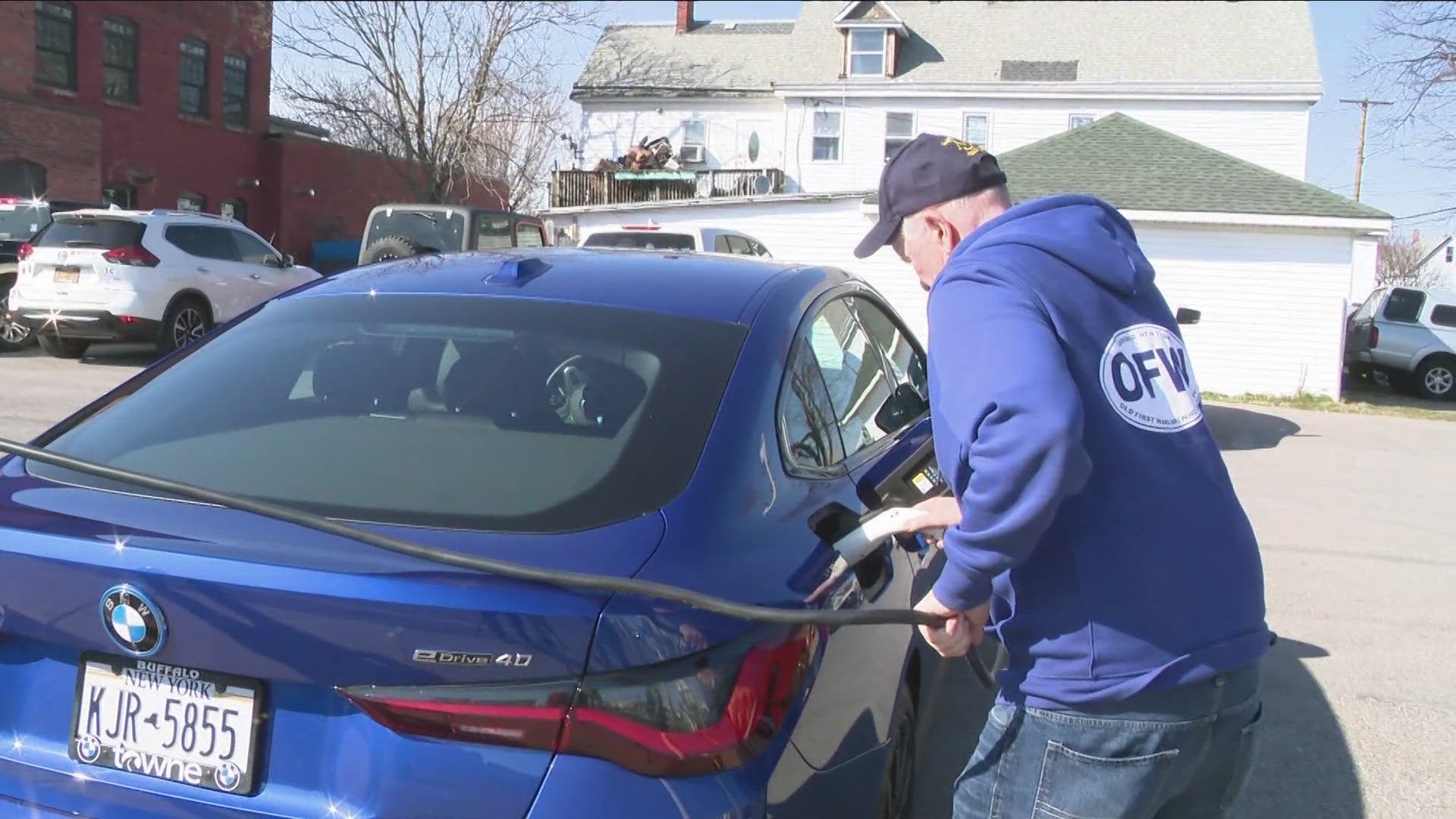BUFFALO, N.Y. — With state and federal officials pushing a transition to electric or zero emission vehicles for climate protection, it's a challenge for local governments like the City of Buffalo.
As 2 On Your Side reported Tuesday, the Buffalo Common Council's Finance Committee took a first step in that direction. We took a closer look at that transition process for the city.
In some ways it's not new and sometimes produced mixed results. For example, in 2017 the Town of Cheektowaga got electric vehicles for town staffers under a $250,000 state grant. We found somewhat limited use in a 2021 follow-up report.
Then there have been electric bus tryouts for the NFTA and state mandated electric school buses to replace traditional diesel buses, and there have been trials with even non-patrol EV police cars in Maine.
So now also with a $187,000 state taxpayer-funded grant from the New York State Energy Research and Development Agency for the City of Buffalo, two Ford Lightning pickups and two Chevy Equinoxes will be purchased for the parking enforcement officers to drive.
That idea came before City Council's Finance Committee on Tuesday.
Acting Council President Bryan Bollman told us, "Excited to see us moving in this direction. It's a big task. We're starting with the low-hanging fruit on the smaller vehicles, and then we work our way up to the bigger fleet stuff."
Buffalo City Fleet Manager James Cross told members of Council, "I believe the preventive maintenance is going to be a lot less for our electric vehicles versus the gas powered. That's one of the reasons why we're going in that route, because we're trying to find ways to save money with the fleet."
But EV pickups and SUVs still require charging stations, and Parking Commissioner Raymond Wagner discussed those costs with the Council.
"We did put in a request for the capital budget for $500,000, so if that does go through, we plan on using that money to help with the internal fleet, so chargers for the internal fleet as well," Wagner said.
Wagner also explained the source for more such funding: tax dollars from Washington.
"The federal government is giving a ton of money to municipalities to install these chargers," Wagner said.
But there were lingering questions in Council about remaining costs and commitments for a city facing a major deficit situation.
Councilman Rasheed N.C. Wyatt told Cross and Wagner "to actually have a plan so that you can bring to this council, to say this is what we're doing, this is how we'd like to move forward and we want your support."
Wagner replied: "Yeah, I agree with that. Every city, this is an emerging sector, right? So every city is kind of learning on the fly as they go as well."
And finally, Councilman David Rivera raised the reservations of some city departments and the question of when or whether there would actually be EV snowplows or fire trucks.
"Don't feel that the technology has gotten to the point where it meets their needs in certain equipment, whether it's other units or divisions within Public Works or the Fire Department," he said.
A City Hall spokesman released this statement: "The City of Buffalo’s Department of Parking Enforcement is looking to obtain the Common Council’s approval for the purchase of four new electric vehicles (EVs) as part of our ongoing commitment to sustainability and reducing our carbon footprint. The proposed purchase includes two Chevy Equinox EVs and two Ford F150 Lightning EVs, with a total investment of $202,974.16. This initiative is largely supported by funding from the NYSERDA Clean Energy Communities Program, which will contribute $187,500 toward the cost of these vehicles.
As we look to modernize our fleet and explore cost-effective solutions, transitioning to electric vehicles supports the city’s commitment to environmentally friendly practices while also providing long-term savings in fuel and maintenance expenses.
In conjunction with the Council’s approval of this purchase, the department has a charging plan for our newly purchased EVs, ensuring they are ready for use and fully integrated into our daily operations."

